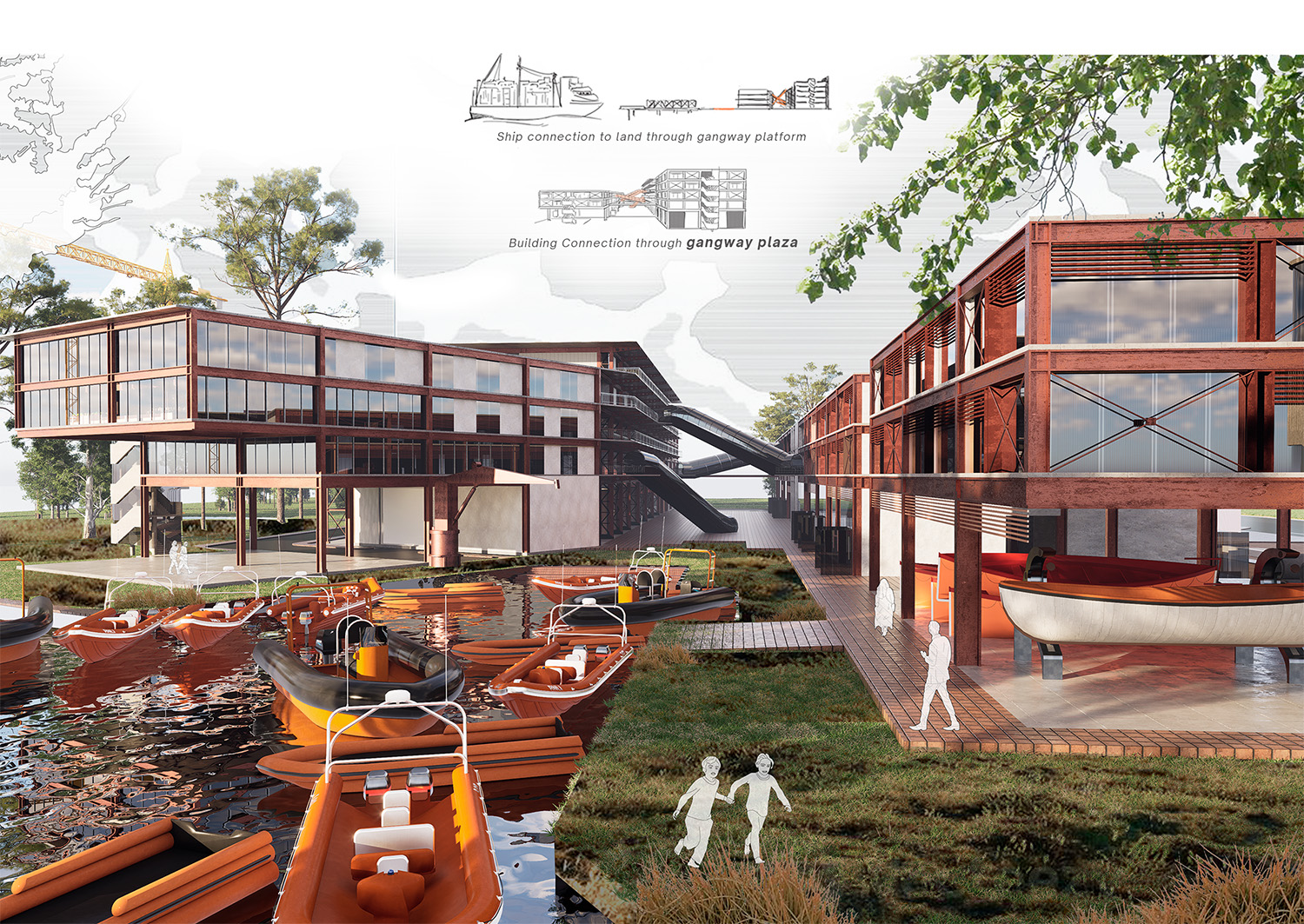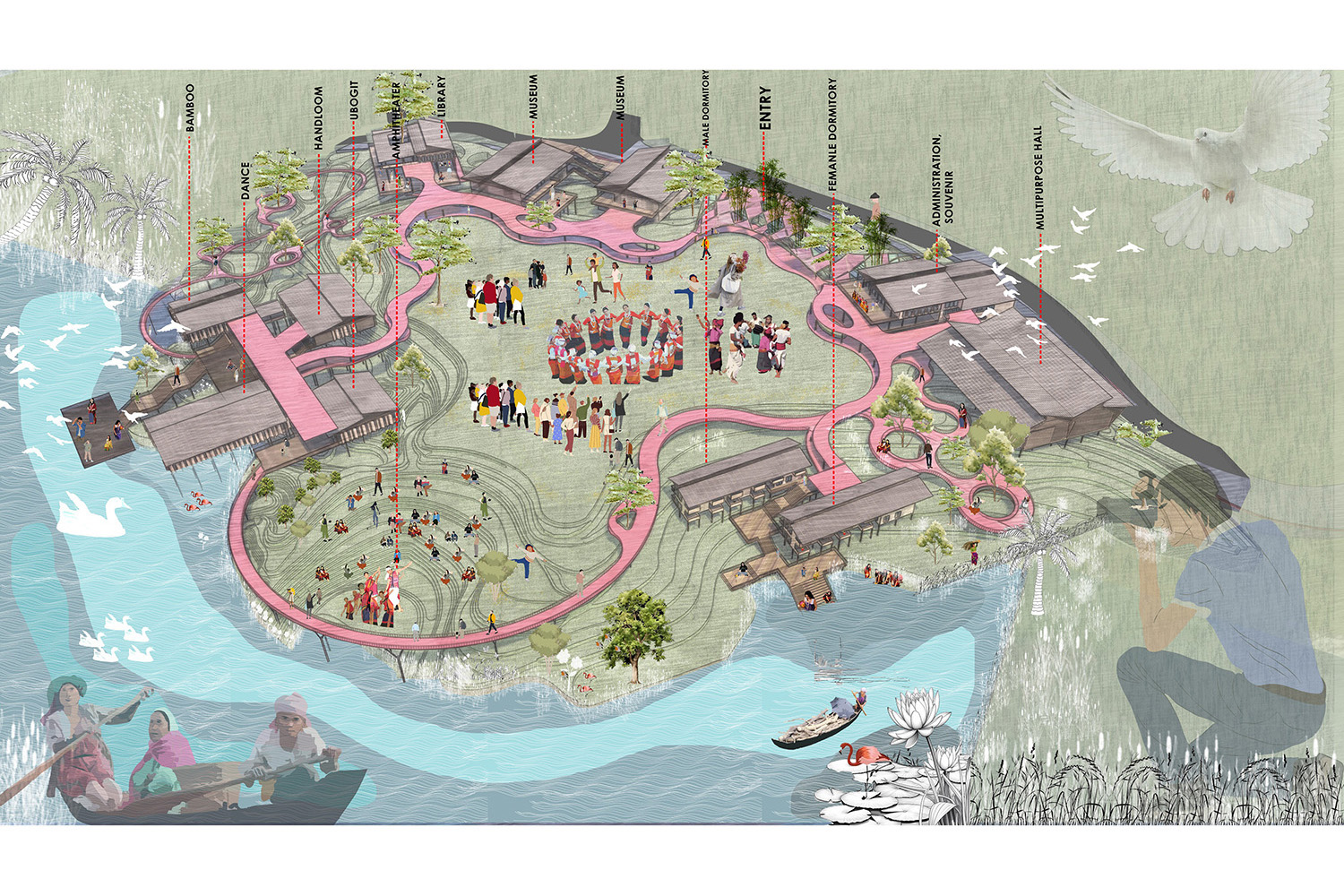A Unified Complex for Plastic Waste Upcycling | CUET

Approximately 7.2 billion metric tons of plastic waste is produced globally and it would take 200 years to recycle at the current rate of 9%. Bangladesh, especially Chittagong, faces poor recycling practices, highlighting the need for improved systems to prevent downcycling.


Downcycling is a challenge where recycled plastic loses quality. In Chittagong at first, plastic waste is collected from different sources and reaches recycling shops through scrap shops. However, there are only a few plastic waste collection and recycling points in Chittagong. After recycling they go to the consumer through the manufacturer. Boluar Dighi, Bastuhara, Ananda Bazar, and Hazir Pul are notable sites for plastic recycling in this region.

The proposed facility aims to upcycle various plastic waste in order to heal the environment by decreasing pollution and emissions, safeguarding natural resources, and preventing the overflow of landfills. Upcycling is an improved recycling method of transforming waste materials into a new product of greater quality with artistic or environmental value. The proposed unified complex offers an integration of a re/upcycling facility and visitor center in one place.



The building form is conceived as a machine to achieve optimal efficiency. It is divided into 2 segments. They are the Industrial segment and the public segment. The industrial segment is divided into 3 sub-segments. They are: i) Production area, ii) Administrative area, and ii) Area for the workers. The public segment offers the visitors an experience zone to explore the whole production process. A number of indoor and outdoor facilities are provided for the workers to ensure their wellbeing.









With the vision of near-zero plastic pollution, it is anticipated that the project will help to contribute to raising public awareness. The facility also includes different neighborhood amenities such as playgrounds, art exhibits, and recreational areas that cater to individuals of all ages, genders, socioeconomic backgrounds, and ethnicities.


Despite the many debates and conflicts surrounding the recycling of plastic waste, it is undeniable that we rely heavily on plastic in our everyday lives. Therefore, it is impossible to cease using it. Using high-quality recycled plastic can be an alternative. As a result, the production of new plastic will be significantly reduced.









